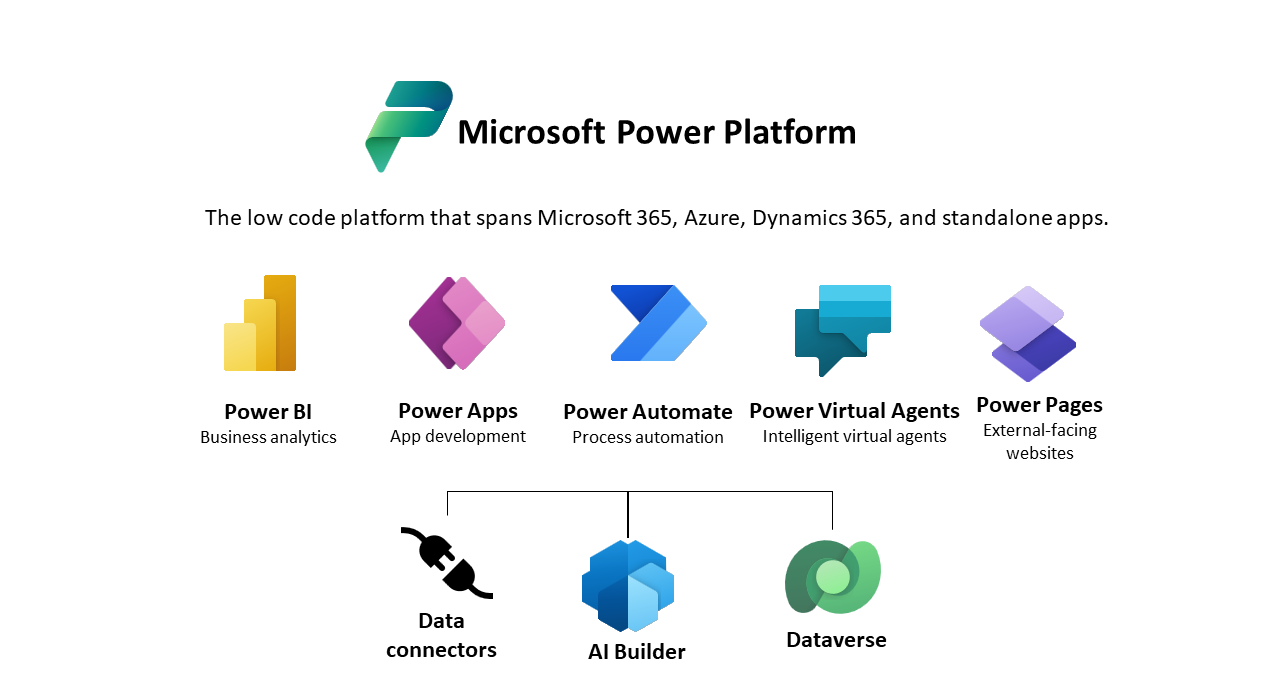Empowering Your Business with Microsoft Power Platform: An Introduction to Power Apps, Power Automate, and Power BI
The Power Platform is a collection of tools developed by Microsoft that allows businesses to build custom applications, automate workflows, and analyze data without the need for extensive coding skills. The platform consists of three main components: Power Apps, Power Automate, and Power BI.
Power Apps
Power Apps is a low-code application development platform that allows businesses to create custom business applications without the need for extensive coding skills. With Power Apps, businesses can create web and mobile applications for various purposes such as managing inventory, customer service, and more. Power Apps also allows businesses to connect to various data sources, including Microsoft 365, Dynamics 365, and other third-party applications.
Power Automate
Power Automate, formerly known as Microsoft Flow, is a cloud-based service that allows businesses to automate workflows across various applications and services. With Power Automate, businesses can create workflows that automate repetitive tasks, such as sending notifications, updating records, and more. Power Automate also allows businesses to connect to various data sources, including Microsoft 365, Dynamics 365, and other third-party applications.
Power BI
Power BI is a business intelligence platform that allows businesses to analyze data and share insights. With Power BI, businesses can connect to various data sources, including Excel spreadsheets, cloud-based and on-premises data sources, and more. Power BI allows businesses to create interactive dashboards and reports that can be shared with other users.
Benefits of Power Platform
The Power Platform offers several benefits to businesses, including increased productivity, improved collaboration, cost-effectiveness, customizability, and scalability.
Increased productivity: The Power Platform allows businesses to automate repetitive tasks, which can save time and increase productivity.
Improved collaboration: With the Power Platform, businesses can connect various applications and data sources, which can improve collaboration across teams.
Cost-effective: The Power Platform is a cost-effective solution for businesses, as it does not require extensive coding skills or IT support.
Customizable: The Power Platform allows businesses to create custom applications and workflows that meet their specific needs.
Scalable: The Power Platform can scale to meet the needs of businesses of all sizes.
Conclusion
The Power Platform is a powerful tool that can benefit businesses of all sizes. With Power Apps, Power Automate, and Power BI, businesses can create custom applications, automate workflows, and analyze data without the need for extensive coding skills or IT support. The Power Platform can save time, increase productivity, improve collaboration, and provide a cost-effective solution for businesses. If you’re interested in learning more about the Power Platform and how it can benefit your business, contact a Microsoft partner today.
